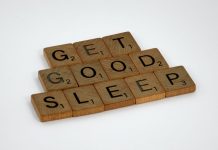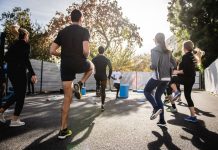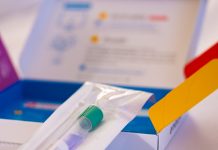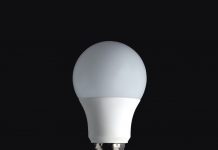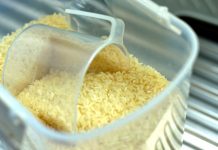Before you reach for your electrolyte supplement before a workout, you might want to consider the latest research conducted by Stanford Medicine—which says that most electrolyte supplements don’t keep electrolyte levels balanced, especially sodium levels.
After conducting a study in ultramarathoners, the researchers discovered that it’s actually more advantageous to address avoiding becoming overhydrated, maintaining lower body masses, and training for longer distances before and during major athletic events to keep electrolyte levels steady.
Electrolyte supplements and sports nutrition drinks are high in sodium and potassium, two important electrolytes. Sodium, potassium, magnesium, and calcium are electrolytes that are necessary for cellular function, but they must remain in balance with each other. If the body has too much or too little water, the levels can become imbalanced, which is the cause of muscle cramps during exercise, but can lead to seizures and heart rhythms in severe cases. Strenuous activity in hot weather can also lead to electrolyte imbalances through the loss of hydration in sweat.
The University of Stanford researchers decided to investigate whether the common recommendations for maintaining electrolyte levels had any scientific evidence to back them up; currently, athletes are told to drink as much water as possible to prevent dehydration and consume electrolyte supplements. Drinking as much water as possible can lead to a condition tied to sodium levels: a type of hyponatremia associated with exercise.
Hyponatremia is the over-consumption of water, resulting in too little sodium in the bloodstream which can cause swelling in the brain. Hyponatremia is often responsible for fatalities in people under the influence of drugs and alcohol at hot music concerts and festivals. Exercise associated hyponatremia (EAH) is the overconsumption of water during exercise, spurred on by a fear of dehydration. EAH has claimed the lives of 14 athletes in the past 35 years. Even if not fatal, EAH causes seizures, altered consciousness levels, and pulmonary edema.
The research team stresses that the fear of dehydration can push many people to over-consume water, and it’s not just athletes that are at risk: football players, military personnel, and half-marathoners have also been victims of EAH. The symptoms of dehydration actually parallel those of EAH, so it’s easy to confuse them and think you need more water when you are actually pushing closer towards being overhydrated.
The study focused on 266 ultramarathoners involved in a week-long marathon in extreme desert climates for 155 miles. Before the race began, marathoners were surveyed and asked which electrolyte supplements were taken and how they would judge when they were needed—whether based on scheduled intervals of time or when they felt thirsty. They were also weighed, and blood samples were collected for electrolyte levels. The rest of the data was collected on the fifth day of the marathon after 50 miles were completed that day.
Out of the 266 ultramarathoners, 41 had sodium imbalances at the end of the marathon. 11 were diagnosed with EAH because of low sodium levels, and 30 athletes were dehydrated because of high sodium levels. All of this occurred during electrolyte supplementation, with some athletes choosing to take sodium tablets hourly; but it had very little effect on maintaining proper sodium levels.
Those athletes diagnosed with EAH had a few things in common: they weighed more than their competitors; participated in shorter training programs before the marathon; and took 5-6 hours more to complete the race. Rather than focusing on the heat as a factor in dehydration and EAH, the researchers determined that avoiding overhydration and avoiding becoming dehydrated were the best tactics to prevent sodium imbalances—basically, balancing yourself—and not relying on electrolyte supplements.
Drinking at regularly timed intervals did not reduce the risk of dehydration. The authors of the study feel that listening to thirst signals and not drinking past the point of feeling bloated or nauseous are key takeaways from their study. If you're an athlete, make sure to speak to a qualified healthcare practitioner about how you can best stay hydrated.
References
Grant S. Lipman, Patrick Burns, Caleb Phillips, Jacob Jensen, Colin Little, Carrie Jurkiewicz, Bryan Jarrett, Anne Walker, Nicky Mansfield, Brian J. Krabak. Effect of Sodium Supplements and Climate on Dysnatremia During Ultramarathon Running. Clinical Journal of Sport Medicine, 2020; 1 DOI: 10.1097/JSM.0000000000000832



